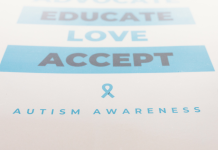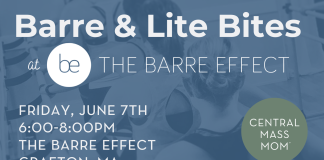There’s a lot they don’t prepare you for in parenthood.
The endless diaper changes. The sleepless nights. The first steps.
You can read all the baby books and organize all the registries, yet there’s only so much you can truly be prepared for beforehand. In a way, aren’t we all just ‘figuring it out as we go?’
However, as a mom and a trauma therapist for women, I’ve noticed a pattern.
We can be exceptionally unprepared for the times when parenting brings up our own past trauma.
Phases and changes that our children exhibit might suddenly have you with a lump in your throat. Perhaps your child is now at the age you were when something terrible happened to you. As your children become more curious about their own sexuality, or their physical appearance transitions from that of a child to an adolescent, you might catch yourself with worries or concerns stemming from your past.
It can feel like a full-time job to keep your children safe in an unpredictable world. Parenting consciously with awareness of your triggers can help you feel more prepared. However, managing the complicated, distressing emotions and sensations that arise can still feel overwhelming.
When our present-moment experience with our children dredges up memories from the past, things can get a little fuzzy.
You might start feeling a sense of panic or dread. Maybe there’s a belief that you won’t be able to keep your children safe. You may even start to shut down and dissociate.
The funny thing is, in these moments we may not even be able to recall the distinct memory. Trauma is often stored through body memories rather than something we can always recall in a clear, linear way. Sometimes the past trauma we experienced was preverbal when we were too young to register it with words. Even if you can’t put a finger on exactly why you feel the way you do, but you know you feel twisted up and uncomfortable inside, this technique could still be useful for you. (In this case, instead of naming a concrete memory, simply refer to your experience as ‘body memories’ or ‘my body is remembering’).
This strategy, inspired by Manuela Mischke-Reeds, MA, LMFT helps you gain awareness and clarity of your experience. By using this template, you can differentiate what has activated you from what is actually happening now. This helps you to ground, become more present as a parent, and be less activated.
Call Your Experience by Its True Name
Simply fill in the blanks with what makes sense for you.
Right now I am feeling ______ (emotion), and I am sensing in my body _____, ______, ______ (at least 3 body sensations) because I am remembering __________ (name the trauma by title only, no details. If a concrete memory cannot be recalled, you can state “because my body is remembering.”)
At the same time, I am looking around where I am now in _____ (name your surroundings, such as “my living room” etc).
I am looking around, and I see _____ (the place where I am at this moment; turn your head slowly and take in the details of what you see).
What I mostly notice is _____ (describe some of the things you see now in this place).
And in this moment I know __________ (title of trauma only) is not happening now/anymore.
I am here.
Make a statement that declares your present-moment state:
I am/feel _______________ (ex: relaxed, at ease, anchored).
When it feels like your past is stealing your ability to be present with your children, know that you can do something about it. When we learn to simply observe our experience without over-identifying it, we are less likely to get swept away when triggered by our past trauma.
All of us come into parenthood with our own baggage – there’s no such thing as blank slates. We are even impacted by what happens to us in utero! What happened to you in the past is never your fault. However, only you can manage your reactions. You absolutely can be the authentic, present mom that you desire to be!
DISCLAIMER: The information provided is not a substitute for professional medical advice or treatment for specific medical conditions. You should not use this information to diagnose or treat a health problem without consulting a qualified healthcare provider.











